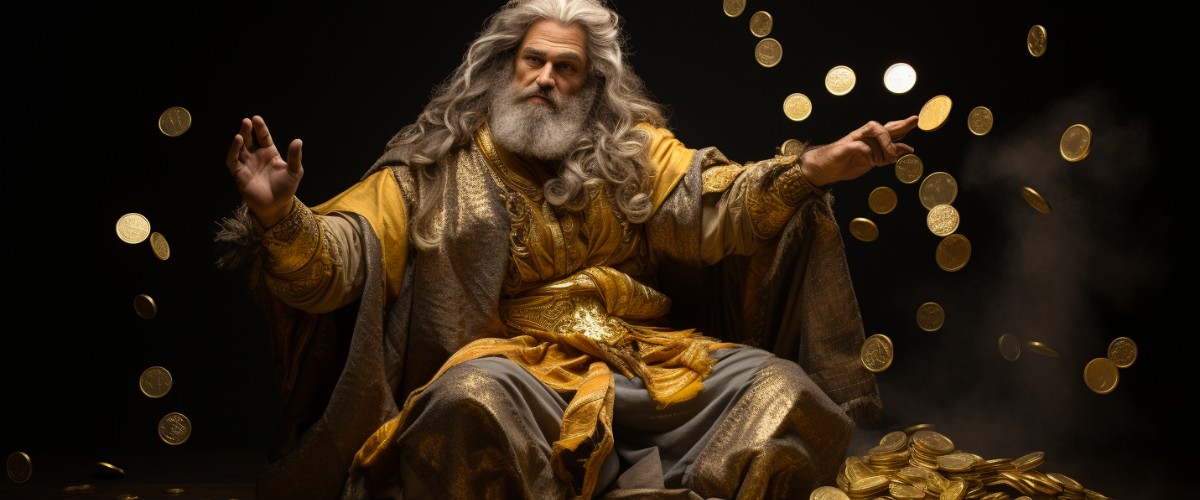Imagine, if you will, a journey back to the 6th century BCE, when trade was a bit trickier than it is today. Let’s take a trip to the prosperous kingdom of Lydia, located in what’s now known as Turkey. Here, we meet an extraordinary man named Croesus, who is about to change the world in an incredible way.
Croesus, the king of Lydia, ascended the throne around 560 BCE. His kingdom was awash with gold, courtesy of the river Pactolus, which was rich with this precious metal. Croesus, however, saw gold as more than just a material for crafting ornaments or stockpiling in vaults. He envisioned it as a universal medium of exchange – a concept we embrace today as ‘money’.
With this revolutionary idea, Croesus oversaw the birth of the first coins during his reign. These were not random pieces of metal, but carefully minted coins made of electrum, a natural alloy of gold and silver, proudly stamped with the royal emblem. This groundbreaking move marked a new era in the world of trade and laid the foundation for modern economics.
Before this invention, bartering was the standard way of trading. For example, if you wanted a new pair of shoes, you’d need to trade something, like a dozen loaves of bread. However, with the introduction of money, these transactions became straightforward. No longer did people need to lug around commodities for barter. Instead, a few small coins would do the trick. This transformation led to more significant trade freedom, commercial expansion, and economic growth.
Naturally, as the king who quite literally minted money, Croesus amassed a great fortune. While it’s challenging to convert ancient wealth to modern numbers accurately, historians estimate his treasure to be in the tens of thousands of talents – a weight measure used for gold and silver in the ancient world. By today’s standards, this fortune would likely be worth billions.
However, Croesus’ story is not one of unending success. Despite his immense wealth and groundbreaking innovation, his story didn’t conclude on a high note. His overconfidence led him to wage war against the Persian Empire, which culminated in his downfall. This once wealthy and innovative king ended up a captive, a stark reminder that wealth alone doesn’t equate to invincibility.
From creating the world’s first coins to his ultimate downfall, Croesus’ life is a significant chapter in our economic history. His tale serves as a reminder that every coin we use for transactions today has its roots in the reign of a visionary king from over 2,500 years ago.
While Croesus’ personal fortune may have been fleeting, his contribution to the world was truly invaluable. His story remains a testament to innovation, prosperity, and the timeless truth that wealth is but one aspect of a successful life.








